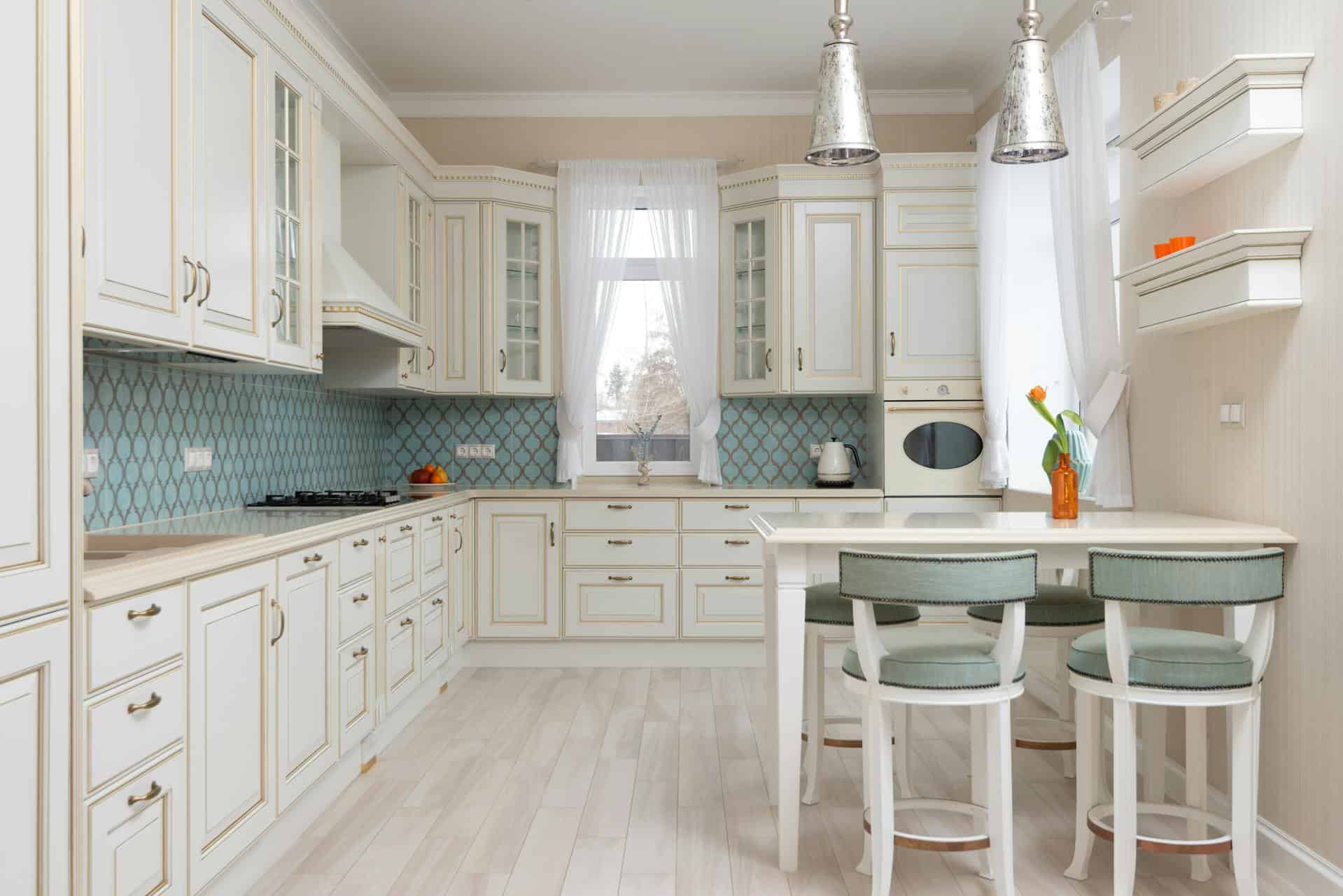
Question: What is the Least Slippery Kitchen Flooring?
Answer: The least slippery kitchen flooring includes textured matte-finish tiles, such as cork, bamboo, or porcelain with a slightly gritty surface, offer excellent slip resistance. Linoleum and sheet vinyl with textured surfaces are also good choices.
Choosing Non-Slip Kitchen Floors
A kitchen floor should be more than just visually appealing; it should provide a safe and secure foundation for daily activities. With the constant potential for spills and splashes, slip resistance is a critical consideration. Choosing the right flooring material can significantly reduce the risk of accidents, offering both practicality and peace of mind. This article examines a selection of slip-resistant kitchen floor options, highlighting the features that make them ideal for creating a safe and functional culinary space.
Understanding Slip Resistance
Several factors influence a floor’s slip resistance. Texture plays a crucial role. Rough surfaces offer more grip than smooth ones. Material also matters. Some materials naturally provide better traction. Finally, consider the finish. Matte finishes reduce slipperiness compared to glossy finishes.
Texture:
Rough surfaces improve grip. Smooth surfaces increase slip risk.Material:
Some materials offer inherent slip resistance.Finish:
Matte finishes decrease slip potential. Glossy finishes may become slippery.
Testing methods measure a floor’s slip resistance. The Coefficient of Friction (COF) quantifies how much force prevents one surface from sliding against another. Higher COF values indicate better slip resistance. The Americans with Disabilities Act (ADA) recommends flooring with a COF of 0.6 or higher for accessible areas.
Click the link to get more information about Blue Kitchen Refacing
Related Article: How to Change a Kitchen Floor on a Budget?
Related Article: What Kitchen Floors Don’t Show Dirt?
Choosing Non-Slip Kitchen Floors: Natural Grip and Enhanced Traction Options
Safety is paramount in the kitchen, where spills, splashes, and constant foot traffic create potential hazards. To mitigate these risks, selecting a slip-resistant flooring material is crucial. This article explores several excellent options, focusing on their natural grip and enhanced traction capabilities, ensuring your kitchen is both beautiful and safe.
Cork Flooring: Naturally Cushioned and Slip-Resistant
Cork flooring stands out for its inherent slip resistance, attributed to its unique cellular structure that provides both cushioning and grip. Comfortable underfoot, cork also excels at sound absorption, significantly reducing kitchen noise. Furthermore, its natural properties contribute to a safe and comfortable environment. However, cork flooring requires a protective sealant to guard against moisture. To maintain its slip resistance, opt for a low-gloss sealant. While cork offers excellent traction, excessive water exposure should be avoided. Promptly cleaning spills is essential to prevent damage, and regular sweeping coupled with occasional mopping will keep cork floors clean and looking their best.
Vinyl Flooring with Enhanced Traction Features
Vinyl flooring, available in sheets, tiles, and planks, offers a versatile and affordable kitchen flooring solution. To enhance safety, look for vinyl products with enhanced traction features, such as textured surfaces and slip-resistant coatings, which significantly improve grip. Vinyl is also easy to maintain, making it a popular choice for busy kitchens. For optimal slip resistance, select vinyl flooring with a high Coefficient of Friction (COF) rating. Textured vinyl provides superior grip compared to smooth vinyl, and manufacturers often incorporate slip-resistant coatings to further enhance traction. Due to its water-resistant nature, vinyl is well-suited for kitchen environments. Maintaining its appearance and slip resistance is simple with regular sweeping and mopping.
Bamboo: Sustainable and Naturally Slip-Resistant
Bamboo flooring is an eco-friendly choice, renowned for its rapid growth and minimal resource requirements. It offers natural slip resistance, comparable to some hardwoods. Strand-woven bamboo, known for its greater density and durability, further enhances slip resistance. For improved grip, select bamboo flooring with a low-gloss finish. Strand-woven bamboo also provides better slip resistance than horizontally or vertically grained varieties. As with other wood flooring, spills should be cleaned promptly to prevent damage. Regular sweeping and occasional mopping will maintain bamboo’s appearance and slip-resistant qualities.
Linoleum’s Inherent Slip Resistance and Durability
Linoleum, a natural flooring material composed of linseed oil, wood flour, and other natural ingredients, boasts inherent slip resistance and durability. Its natural composition makes it a safe and eco-friendly choice for kitchens. To preserve its slip-resistant properties and appearance, regular maintenance is essential. Linoleum offers reliable traction, even when wet. For maximum slip resistance, choose a matte finish. Avoid using harsh chemicals when cleaning linoleum; instead, opt for regular sweeping and occasional mopping with a pH-neutral cleaner to maintain its slip-resistant surface.
Choosing the Right Floor for Your Kitchen
Choosing slip-resistant kitchen flooring is crucial for safety. Consider your budget, style preferences, and lifestyle when making your decision. Each flooring type offers distinct benefits. Prioritize slip resistance to create a safe and functional kitchen space. By understanding the factors that contribute to slip resistance and exploring available options, you can choose the flooring that best meets your needs and ensures a secure and enjoyable kitchen environment. [ 1 ]
References
1. https://floormonk.com/blog-detail/the-least-slippery-flooring-options-keep-your-home-safe-and-stylish/

Blue Malue Get in touch with Blue here.
